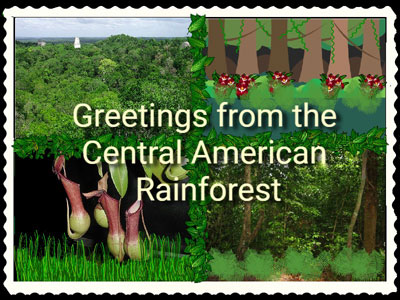
Students learn about the five biomes as they create a promotional travel brochure that provides information and an itinerary for a visit.
Complete a Biomes KWHL chart as a class to get students thinking about biomes that exist around the world, activate prior knowledge, and assess what students already know about biomes.
Use your textbook, online resources, and videos to introduce students to the different biomes found on Earth.
Once students have a foundational understanding about all of the biomes, group students into teams of 3-4. Assign each team the task of creating a travel brochure for a tour through a specific biome.
Have student teams research the following questions about their biome:
When each group has collected a solid amount of information, ask them to complete a Venn Diagram comparing life in that time and place to life now. This will help you identify misconceptions and will help them identify unique features of their biome to include in their brochures.
Have students create an itinerary, brochure, or even an advertisement for a tour of their biome. For example, a biome advertisement could include:
Students can print the brochures or share work digitally through the project URL. This allows them to create vivid travel “infomercials” with culturally appropriate sounds and voice narration!
Have each team present the information in their brochure orally to the rest of the class, helping them combine informational and argument writing and speaking. You may want to ask a representative or two travel agencies to review the brochures and oral presentations and provide feedback.
The students will synthesize their knowledge based upon their research to create their digital travel brochure. This project must include various facts about the particular biome, including a persuasive argument as to why tourists should visit their biome.
Grade 3: LS4-3 Biological Evolution: Unity and Diversity
Construct an argument with evidence that in a particular habitat some organisms can survive well, some survive less well, and some cannot survive at all.
Grade 6-8: LS2-3 Ecosystems: Interactions, Energy, and Dynamics
Develop a model to describe the cycling of matter and flow of energy among living and nonliving parts of an ecosystem.
